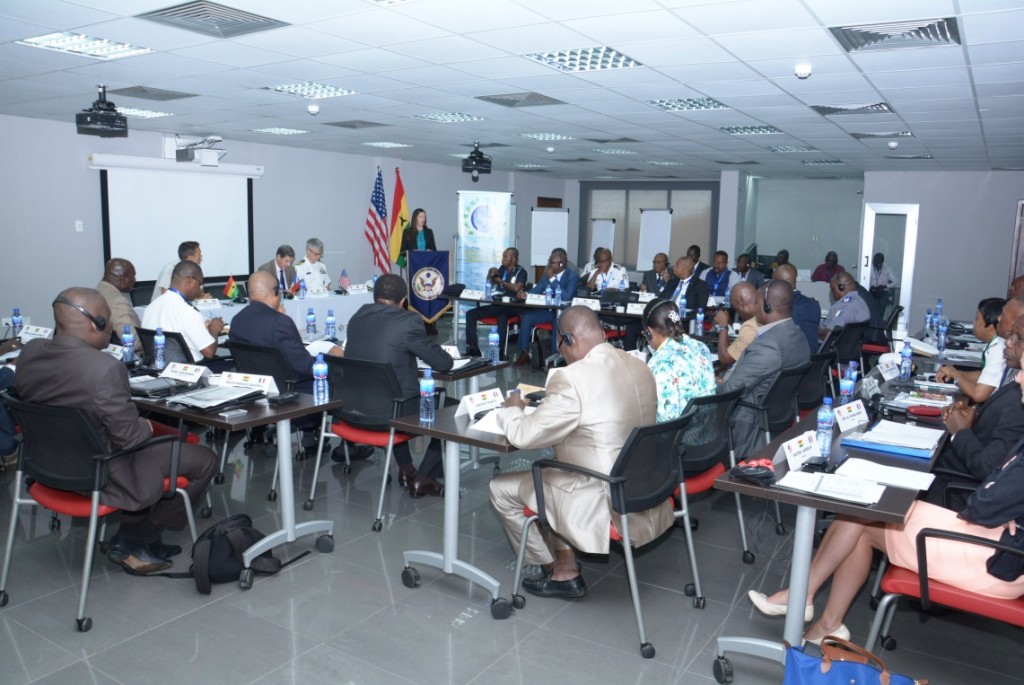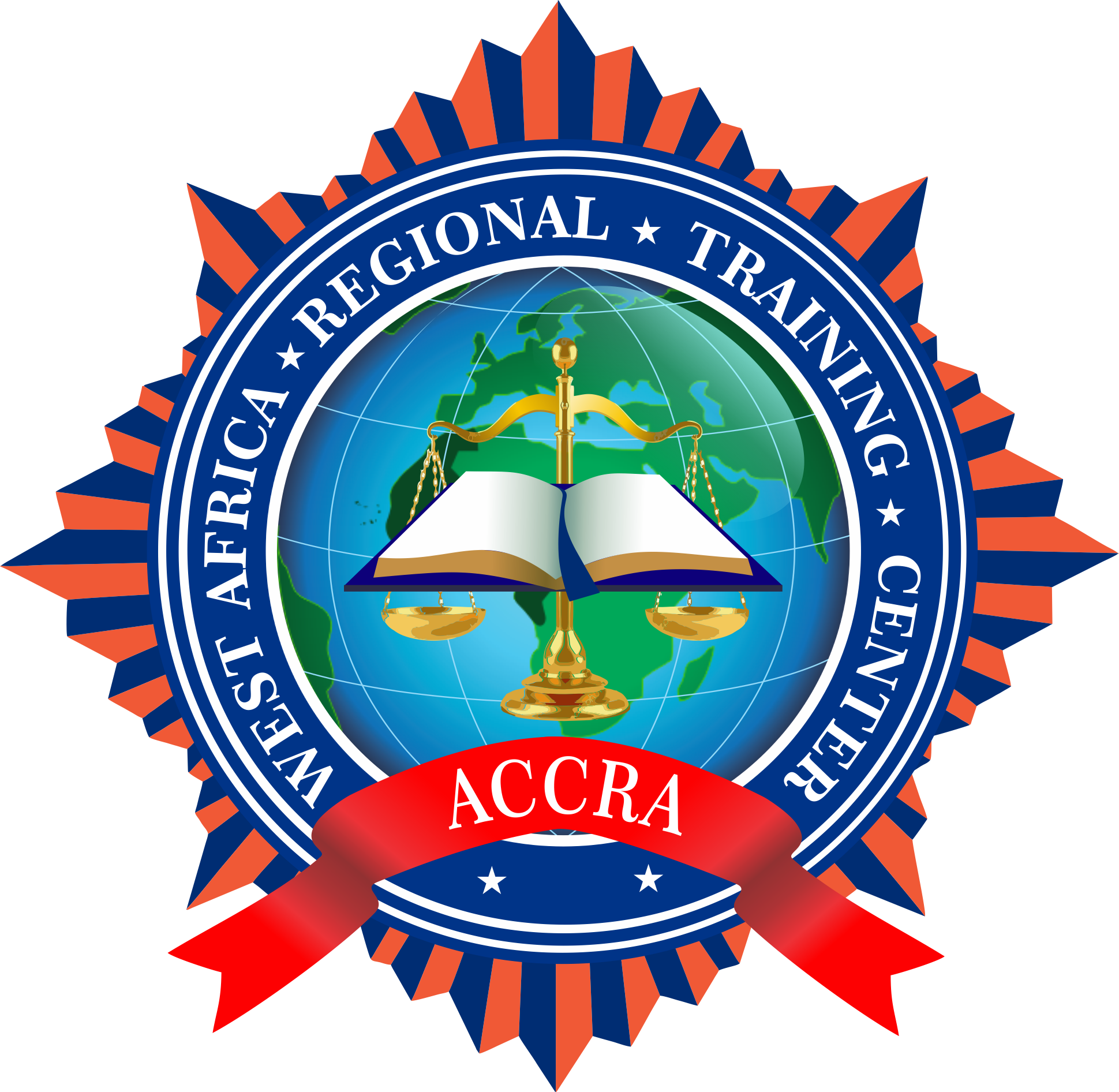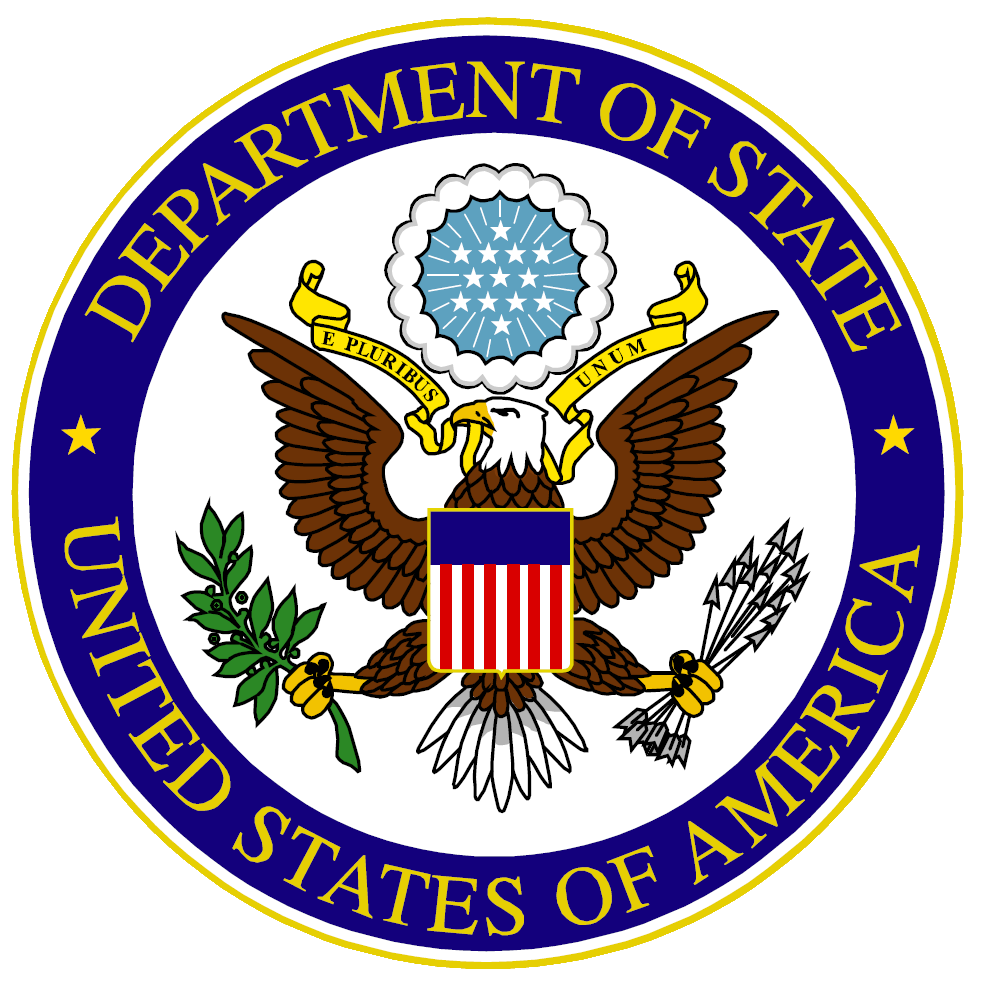West Africa Joint Naval Exercise Significance by Ms. Jenna Lefler
Published

This month, we would like to feature a story based on a real-life successful Maritime Operation that demonstrates the value of international cooperation in fighting transnational organized crime. The writer, Miss Jenna Lefler, is one of the Program Managers here at the West Africa Regional Training Center and is a fervent advocate for the mission of the RTC. There are a lot of lessons to be learnt from this post and so we hope that you enjoy the read. Please, feel free to write back to us (info@westafricartc.org) if you have comments or if you would like to share similar stories based on successful cases you have worked on.
What was meant to be a naval training exercise turned into a real-life shoot out and rescue operation.
It’s being praised as the first “big success” in international maritime cooperation in the Gulf of Guinea and the “first anti-piracy success in the region of this scale.”[i] The Washington Post explains that what was meant to be a naval training exercise with the US and several West African nations developed a new sense of urgency when reports of a hijacked oil tanker loitering off the coast of Côte d’Ivoire transformed the exercise into a real-life rescue operation.
Working off of a tip from the French Embassy, the navies of the United States, Ghana, Togo, and Nigeria tracked the hijacked oil tanker as it traveled through the Gulf of Guinea toward Sao Tome, until the Nigerian naval forces were able to successfully storm and regain control of the vessel. The triumph of this operation undoubtedly rested on two key components that are also cornerstones of the West Africa Regional Training Center’s (RTC) mission.
First, the parties involved in the operation benefitted from practical exercise-based training, which encourages participants to “learn by doing.” This enables individuals to seamlessly apply skills acquired in training to real-life situations. Once equipped with the appropriate skill-set and resources, agencies from several different countries worked together, each playing an important role in the rescue of the vessel. Their collective actions demonstrated the value of international coordination and communication. The success of this operation highlights the importance of high-quality, skills-based training programs and international cooperation – two principles that the RTC has applied to its objective of preparing law enforcement and rule of law professionals with the skills and connections they need to build safe and stable communities in West Africa.
The West Africa Regional Training Center plays a vital role in enhancing regional security in Africa by delivering high-quality, hands-on training programs and creating a network of law enforcement and rule of law professionals who can call upon one another for assistance during an investigation or operation to obstruct illicit activity. By transferring advanced investigative and analytical skills to security professionals in West Africa, the RTC disrupts transnational criminal activity, including illicit trafficking, money laundering, corruption, and border insecurity, thereby promoting stability in the region. This puts the RTC program at the forefront of the US Government’s efforts to curb the deleterious effects of transnational organized crime and to facilitate stable criminal justice systems that strengthen international law enforcement and judicial effectiveness.
At the RTC, we believe that international training programs are most effective when participants are given the opportunity to practice relevant skills before they leave the classroom. As the recent events in the Gulf of Guinea demonstrate, emergency situations can present themselves at a moment’s notice. Our goal at the RTC is to ensure that our alumni are well prepared when suddenly confronted with a security challenge or legal dilemma.
In fact, in June of 2015, the RTC hosted a Maritime Legal Seminar that allowed participants to do just that. The training was co-sponsored by the U.S. Department of State, Bureau of International Narcotics and Law Enforcement Affairs (INL) and the French Ministry of Foreign and International Development, Directorate for Security and Defense Cooperation (DCSD). The seminar was organized in response to Africa’s mounting maritime challenges that require the development, strengthening, and integration of regional legal frameworks. It brought together an array of professionals in the maritime security sector, including officials from the gendarmerie, navy, police, ministries of defense and interior, as well as legal experts, judges, and magistrates.
Opening ceremony of RTC's Maritime Legal Seminar
During this training, our facilitators challenged participants to put lessons into practice through comprehensive practical scenarios. One scenario dealt with laws on Hot Pursuit, wherein teams acted as the crew of a frigate in pursuit of an offending ship. The teams deliberated the legal extent of a chase that would lead them through the littoral territory of several countries. The recent events in the Gulf of Guinea demonstrated the pertinence of this exercise when the Nigerian navy confronted a legal challenge because pirates claimed that they were in international waters and therefore had the laws of the sea on their side. However, the Nigerian navy rightly assessed that they were within their legal right to act because of a maritime agreement allowing Nigeria to patrol Sao Tome’s waters. Not only does this highlight the importance of skills-based training programs, but it also displays how international coordination can determine the success or failure of an emergency response.
As transnational criminal networks continue to expand their reach across borders, international cooperation has become even more essential for countries to share information and plan successful interventions. The oil tanker rescue operation would not have been possible if not for the diplomatic and naval efforts of France, the United States, Ghana, Togo, Nigeria, and several others. That is why the RTC emphasizes the importance of building sustainable relationships between our participants from different countries or agencies. We fortify these connections by hosting alumni outreach events, updating participant’s on their colleagues’ successes, and offering ourselves as a tool to connect our alumni with other professionals who may be of assistance over the course of an investigation or project. With some of West Africa’s top law enforcement and rule of law practitioners among our alumni, the RTC can serve as a tremendous liaison for investigators and other professionals.
International training is most effective when it encourages participants to put the skills and lessons into action through practical exercises. These exercises prepare individuals to respond effectively and legally to the type of scenario that transpired last month in the Gulf of Guinea. When the US Navy hosted a training exercise in the Gulf of Guinea, the exercise drill became a real-life rescue mission. The operation’s success hinged on the high quality training and the information sharing and coordination between all countries involved. This event serves as a shining example of international training and cooperation done-right and all of us here at the RTC applaud the efforts of the individuals and agencies involved in this critical operation.
[i] Michelle Faul. “Training exercise off W. Africa becomes real-life navy drama.” 26 February 2016. The Washington Post. https://www.washingtonpost.com/world/africa/us-nigerian-navies-ship-rescue-success-for-cooperation/2016/02/26/96eceb16-dca2-11e5-8210-f0bd8de915f6_story.html?postshare=8221456586192385&tid=ss_mail
Post by Miss Jenna Lefler. Jenna is a Program Manager at the West Africa Regional Training Center. Contact her at info@westafricartc.org


